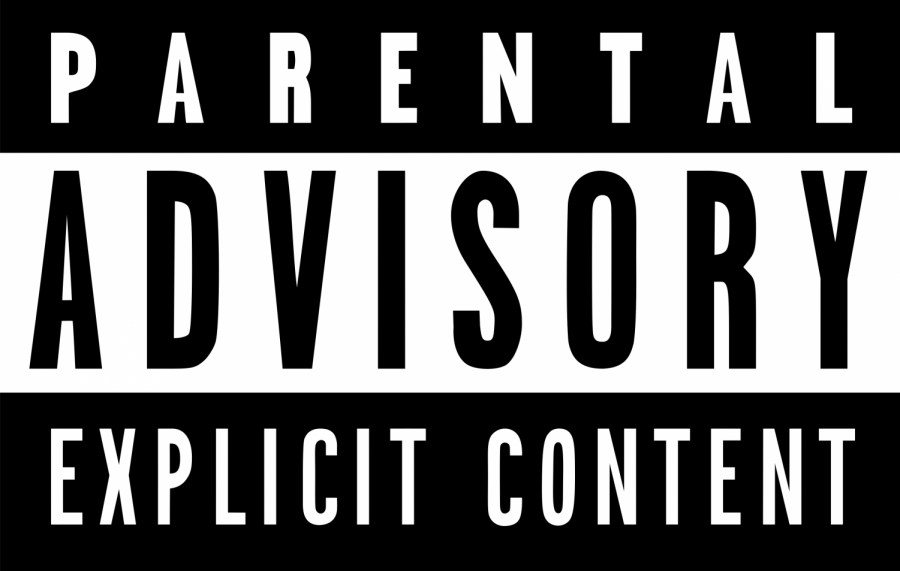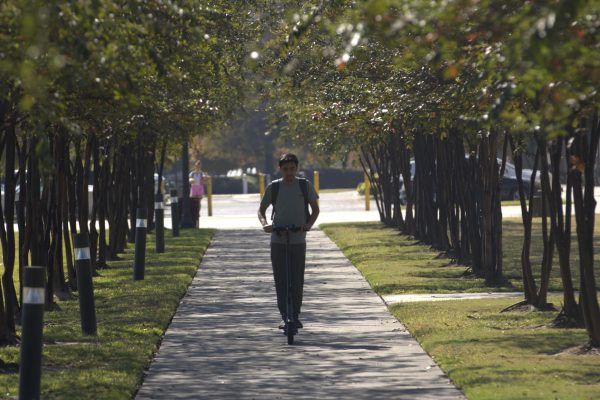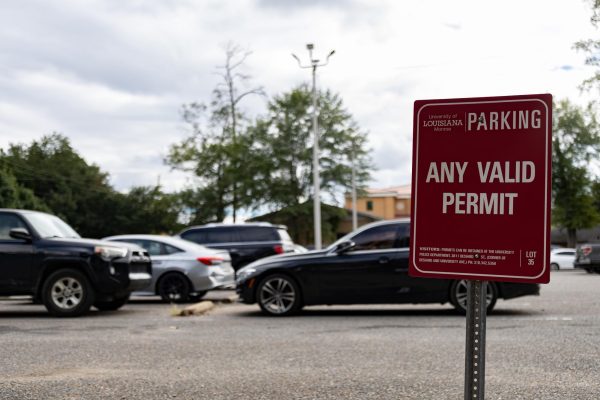Parents are responsible for censoring not musicians
“Pony” by Ginuwine. “Womanizer” by Britney Spears. “S&M” by Rihanna. These are songs we listen to now and wonder why our parents let us sing them.
We never knew these songs were inappropriate. We just sang them and had a great time.
However, it seems that it isn’t as easy to hide that songs are inappropriate now.
Artists used to hide their dirty jokes within the song so children wouldn’t recognize them. Now artists don’t care. They’ll put it in the title.
Just think about “WAP” by Cardi B and Megan the Stallion or “34+35” by Ariana Grande. The titles themselves are references to dirty jokes.
This has led to a lot of controversy surrounding explicit music. Some people say it’s the parent’s job to censor music for their children. And others say it’s the artist’s job.
One of the main arguments is that if children listen to songs about sex they’ll be sexually active before they’re ready.
However, this isn’t true. According to the American Psychology Association, a minor’s view on sexual activity doesn’t change when they listen to explicit music.
It’s not artists’ responsibility to censor their music so children can listen.
If parents don’t want their child to listen to explicit music, they should keep their child away from it.
There are many more options for kid-friendly music. Listen to gospel, clean pop or clean alternative music.
Children can also listen to Kidz Bop. They remix popular explicit songs and make them kid-friendly.
Although it’s easy to blame artists for releasing explicit music that children might listen to, artists don’t force anyone to listen to their music.
At the end of the day, it’s your child not the artists’. Therefore, it’s your responsibility to make sure your children don’t listen to explicit music. It’s not the artists’ job to censor their explicit music.





Ck • May 3, 2024 at 3:08 pm
I’ve never heard this song before. Am I too conservative? Personally, I believe that true sexiness should be like a layer of veil, looming or semi-invisible. Just like compared to being naked, wearing a wet white shirt that’s semi-transparent feels sexier, hotter, and more artistic. If it’s too direct, it can become obscene and make people – maybe just me – uncomfortable.
It feels like this is something that should only exist underground. How can this be brought to the table, under the sun? If I’m out in public and someone plays this song, I will be embarrassed. What about parents with kids? What should they do if the TV plays this ‘music’?
Sex is great and part of nature, no one will deny it. But as humans, we should never do it openly in public places. One of the differences between humans and animals is that we have a sense of shame. Maybe I’m old-fashioned and can’t keep up with the new generation’s popularity and thought nowadays.
I will never talk about my sex life or listen to others talk about their sex life with people who are not close to me or whom I do not choose. It may sound extreme, but this song makes me feel like my ears are being raped. This song makes me uncomfortable, and isn’t it considered sexual harassment? I don’t want to listen to it. How come it’s allowed to exist in public? Hey, at least a warning sign before it plays?
This does not matter to me about how successful she is. For me, she’s a stranger in my life. This is all about Morality, and a responsibilities to society as a public person.
I didn’t want to expand the content that far, I just wanna talk about my feelings in the beginning. I had been talking about it with someone and now he gave me the urge to call people in and get lawyers to review this song.
I just don’t understand, if someone is naked in public, police will arrest them. How come no one says “Hey if you don’t like it just don’t look at them, they have the freedom to be naked in the street.”
Yea she’s a full-grown adult with the bodily autonomy to produce what she wants, but not everyone in the public is a fully-grown adult. Again, at least a warning sign before the song like it starts to play?
We have Rated R in movie, photo, even book/article. how come auditory don’t have rating? Is interesting to find out the public treats visually explicit sex-related products so differently from auditory products. They are both sensory, so why aren’t auditory products taken seriously?
I do know a lot of songs that talk about sex, but I don’t remember any of them say it that directly and roughly. I do enjoy some song that relates to sex, but please, be a bit implicit, that’s what call the art of language.
I don’t understand, just don’t understand, how come the lyrics like it could called “Art”. Yes, she worked very hard on this work. Undeniable the music video is amazing, but the lyrics are undeniable gross as well. Also, some people mention Rap, at least rap won’t be packaged with pink bubbles like or artistic girl-like MVs and try to normalise their products. Pop culture has a great influence on the next generation, I really don’t think this kind of music should exist in public without warning.